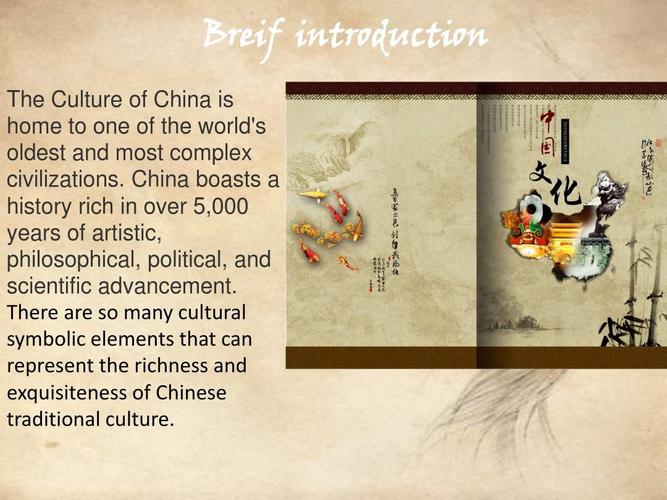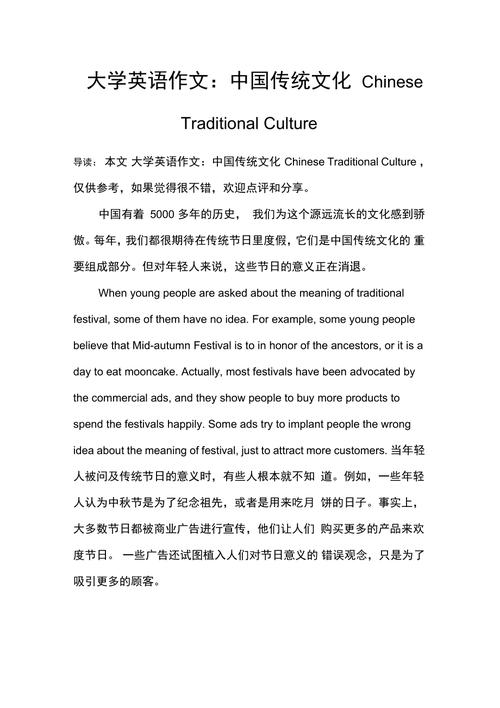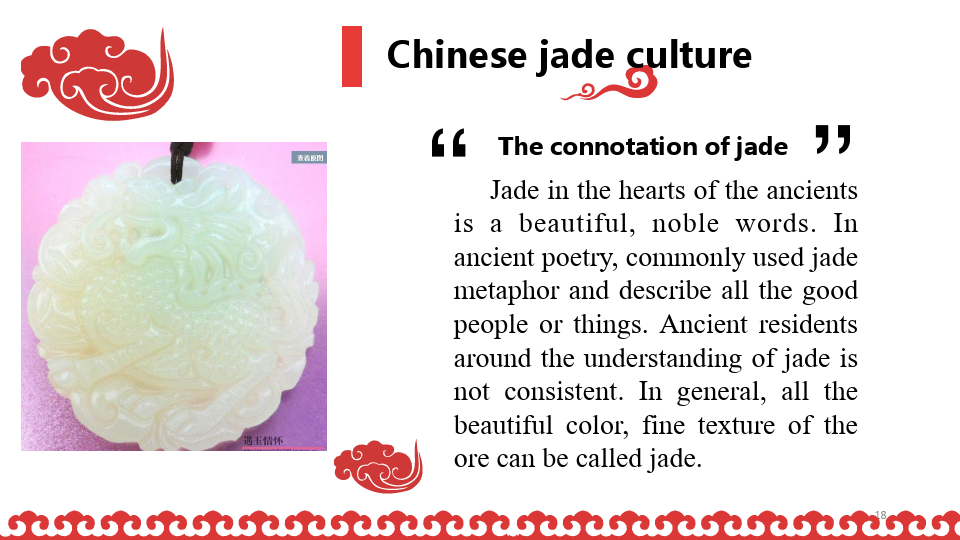中国传统文化的丰富内容与核心本质。涵盖儒、道、墨等思想流派,涉及诗词、书画、礼仪等艺术形式。传统文化体现了中华民族的精神特质,如和谐、尊重自然、崇尚道德等。这些文化元素共同构成了中国文化的深厚底蕴,对现代社会仍具有深远影响。
Chinese traditional culture is a vast and profound field that encompasses thousands of years of history and wisdom. It is a rich tapestry of values, beliefs, customs, traditions, and art forms that have been passed down through generations. Here is an exploration of the main contents of Chinese traditional culture.
1、Philosophy and Religion
Chinese philosophy and religion are the bedrock of traditional culture. The main religions in China include Buddhism, Taoism, and Christianity, each with its own philosophy and practices. These religions have influenced the way Chinese people think and live their lives for centuries. Key philosophical concepts such as harmony, balance, and the unity of nature and man are deeply ingrained in Chinese culture.
2、Art and Literature
Chinese art and literature are expressions of the cultural heritage. Traditional art forms include calligraphy, painting, porcelain making, silk reeling, and traditional music. These art forms reflect the aesthetic values and cultural identity of the Chinese people. Literature, particularly classical literature like poetry and novels, is a rich source of cultural wisdom and historical knowledge.
3、Architecture and Urban Planning
Chinese architecture and urban planning are unique expressions of cultural heritage. Traditional buildings, particularly those in the ancient cities like Beijing, Nanjing, and Xi'an, reflect the cultural values and aesthetic preferences of past generations. The layout of cities, streets, and houses reflects a deep understanding of environmental harmony and balance.
4、Cuisine and Food Culture
Chinese cuisine is not just about flavorful dishes; it's also a reflection of cultural values and traditions. The variety of cuisines across China reflects the diverse cultural and geographical influences on food culture. The preparation methods, ingredients, and dining practices are deeply ingrained in Chinese culture and have been passed down through generations.
5、Rituals and Festivals
Chinese rituals and festivals are an integral part of traditional culture. Many festivals like the Spring Festival, Mid-Autumn Festival, Dragon Boat Festival, etc., are celebrated with great enthusiasm and joy. These festivals are not just about celebrating; they also serve as a way to pass down cultural values and traditions to the younger generation. Rituals like wedding ceremonies, birth ceremonies, etc., are deeply ingrained in Chinese culture and reflect the importance of family and community.
6、Traditional Medicines and Health Care
Traditional Chinese medicine (TCM) is an integral part of Chinese culture that has been practiced for thousands of years. TCM emphasizes the harmony of body, mind, and spirit and emphasizes preventive healthcare. Acupuncture, massage, herbal medicines, diet therapy, etc., are some of the practices that are still widely used today.
In conclusion, Chinese traditional culture is a vast and diverse field that encompasses various aspects like philosophy, art, literature, architecture, food culture, rituals, festivals, and health care. This rich cultural heritage has been passed down through generations and continues to influence the lives of Chinese people even today. Understanding and appreciating Chinese traditional culture is essential to understanding the historical and contemporary context of China.




 沪ICP备20024835号-1
沪ICP备20024835号-1
还没有评论,来说两句吧...